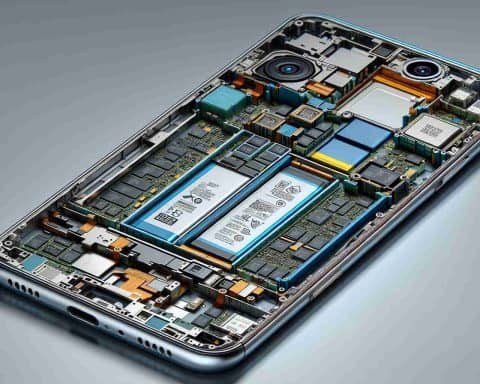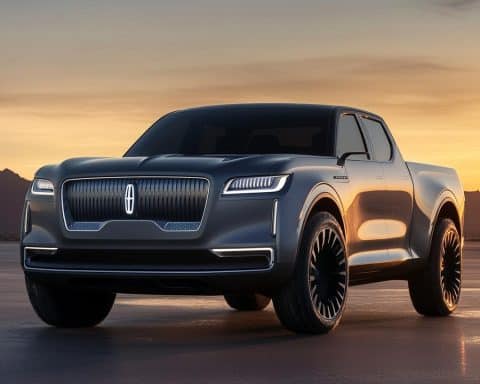Daimler Buses is accelerating its journey toward a greener future, leveraging innovation and market leadership to tackle challenges in sustainable mobility. Since initiating the production of battery-powered urban buses in 2018, the company has been actively developing advanced vehicles, including new fuel cell models. By the end of the decade, Daimler plans to introduce electric or hydrogen-powered coaches, marking a significant milestone in what it describes as ‘the bus decade.’
The company acknowledges the importance of infrastructure in this transition. In 2023, Daimler Buses launched Daimler Buses Solutions, a service dedicated to designing and constructing electric infrastructure. Despite progress in product and cost-effectiveness, infrastructure development lags, impacting growth potential. CEO Till Oberwörder emphasizes that robust infrastructure is crucial for the success of electric buses.
The strategic focus lies in core regions like Europe, Latin America, and Mexico, where Daimler holds a leading market position. The company is driving initiatives to help its customers transition from diesel to electric vehicles, offering comprehensive solutions through Daimler Buses Solutions. The U.S. market also presents opportunities, with tailored products like the Mercedes-Benz Tourrider.
The rising demand for sustainable travel propels the recovery of the coach market post-pandemic. Daimler foresees Europe taking the lead in battery-electric bus deployments, driven by fleet upgrades and a strong push for sustainability.
Daimler Buses attributes its financial resilience and growth partly to investments made during the pandemic. Optimizing processes and flexible production arrangements have readyed the company to rebound as markets recover. Ultimately, sustainable transportation’s future hinges on cohesive strategies encompassing innovative products, infrastructure, and financial viability, aimed at achieving ambitious emission goals.
The Impact of Electric Vehicles on Society and the Environment
As the world increasingly pivots towards sustainable solutions, electric vehicles (EVs) have emerged as a cornerstone of this transformation. The adoption of EVs affects individuals, communities, and countries in multifaceted ways. This article explores these impacts, highlighting both the benefits and the controversies surrounding this shift.
Empowering Individuals and Communities
The rise of electric vehicles offers substantial benefits to individuals and communities. One of the most significant is the reduction of air pollution. Unlike traditional gasoline-powered cars, EVs produce no tailpipe emissions, reducing harmful substances like carbon monoxide and nitrogen oxides in urban areas. This change directly improves air quality and can lead to better respiratory health outcomes for city dwellers.
Moreover, EVs are often cheaper to maintain. With fewer moving parts compared to internal combustion engine vehicles, owners spend less on repairs and maintenance over the vehicle’s lifetime. Additionally, the cost per mile for electricity is generally lower than gasoline, contributing to long-term savings.
Communities are also seeing economic benefits through job creation in new industries. As demand for electric vehicles grows, so does the need for skilled workers to develop, manufacture, and maintain these technologies. Regions investing in EV infrastructure and manufacturing are experiencing economic revitalization.
National and Global Impacts
Countries worldwide are implementing policies to foster the transition to electric vehicles. National governments are investing in charging infrastructure, providing incentives such as tax breaks, and setting ambitious targets for phasing out gasoline cars. This shift helps nations reduce their carbon footprint, contributing to global efforts against climate change.
However, the production of electric vehicles is not without environmental concerns. The mining and processing of lithium, cobalt, and other materials used in EV batteries can have significant ecological impacts. It is crucial for the industry to develop sustainable mining practices and recycling methods to mitigate these effects.
Controversies and Challenges
Despite their many benefits, electric vehicles are not without controversy. One major concern is the source of the electricity that powers them. If the grid relies heavily on fossil fuels, the environmental benefits of EVs can be significantly diminished. Thus, the transition to renewable energy sources is integral to maximizing the positive impact of electric vehicles.
Another debate revolves around battery production and disposal. While progress is being made in battery technology and recycling methods, the current processes still pose environmental risks. Stakeholders argue that advancements in technology and stricter regulations are needed to ensure sustainable practices.
Interesting Facts
1. Norway is leading the charge in EV adoption, with electric cars making up over 50% of new car sales as of 2020.
2. Tesla, a key player in the EV industry, has spurred numerous innovations, including its development of the Supercharger network that allows for rapid recharging of vehicles.
3. The longest journey in an electric vehicle was completed in 2019, spanning 23 countries over 28,198 miles.
In conclusion, electric vehicles stand as a promising solution to many environmental and economic challenges, fostering significant changes at individual, community, and national levels. However, continuous innovation, responsible practices, and supportive policies are critical to overcoming existing barriers and controversies. To learn more about the latest developments in the electric vehicle industry, visit Tesla or Nissan, some of the leaders in this transformative market.

















